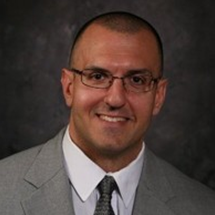Physicians Have Options When It Comes to Board Certification, According to Emmanuel Konstantakos, MD
 Unlike what many residents believed during their residencies, physicians have several options for board certification. During the chief year of my orthopedic surgery residency, many of us learned that there are only three truly legitimate physician board certifying bodies in North America: the ABMS (American Board of Medical Specialties), the American Osteopathic Association (AOA), and the American Board of Physician Specialties® (ABPS).
Unlike what many residents believed during their residencies, physicians have several options for board certification. During the chief year of my orthopedic surgery residency, many of us learned that there are only three truly legitimate physician board certifying bodies in North America: the ABMS (American Board of Medical Specialties), the American Osteopathic Association (AOA), and the American Board of Physician Specialties® (ABPS).
Of these three boards, the ABMS is the largest and most well-known, and perhaps also the most monopolizing—nearly every resident is steered towards certifying with the ABMS after graduating. I remember that many residents never even considered another board simply because they had never heard of any other board.
So, let’s consider why the ABPS, a nationally recognized board may be a better option for you, as it has been for many qualified physicians practicing today. The ABPS certified its first physician in 1960. With 12 Member Boards, the ABPS takes a non-discriminatory approach and certifies both allopathic and osteopathic physicians in a wide range of specialties, from traditional fields like family medicine and general surgery to relatively new specialties like integrative medicine and disaster medicine. Truth be told, the ABPS is the only multi-specialty board that offers certification in these emerging fields.
The ABPS certification process is notably rigorous. This isn’t a quick online deal or a certification one “achieves” after attending a really nice dinner with a pharmaceutical representative. ABPS candidates for certification must meet several eligibility requirements and pass a challenging specialty exam. This helps to explain why only the most committed physicians achieve ABPS certification and why ABPS Diplomates practice medicine at some of the most respectable institutions in the country. If there’s one essential takeaway from the ABPS certification process, it’s that the ABPS is a time-tested, verified, and trusted source for both initial certification and recertification.
Remember, board certification is not a requirement. Instead, it’s a voluntary process and its achievement represents a deep commitment to patient care. In today’s medical industry, finding and keeping your dream job if you’re not board certified can be stressful because hospitals and other employers are increasingly hiring board-certified physicians only.
And in case you’re wondering, I don’t have anything to gain from informing you about any particular certification board. As a physician who has been through the process of choosing a board most consistent with my values and best fosters my career development, I simply want other physicians to know that regardless of what you’re made to believe during residency, you have other valid certification options!






